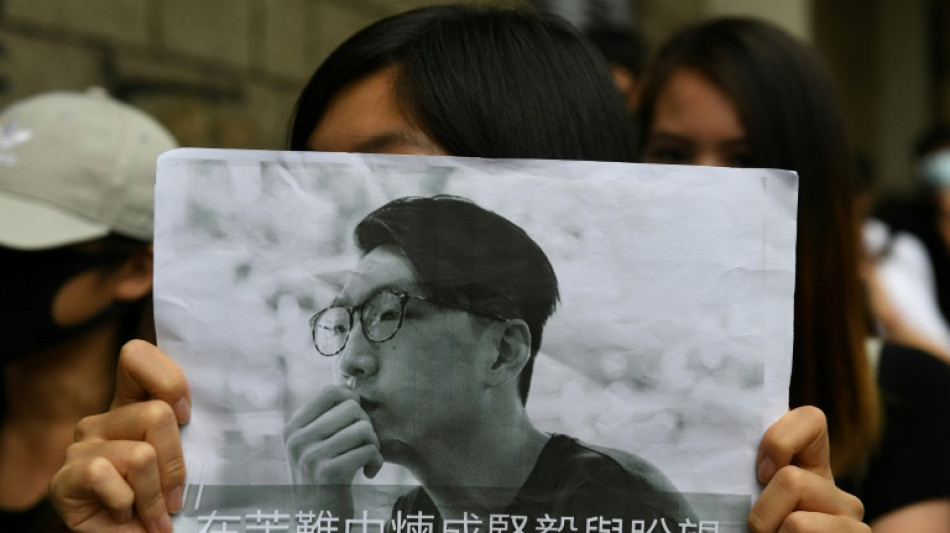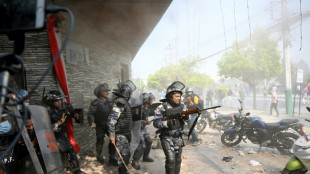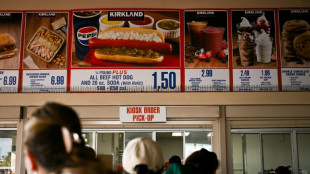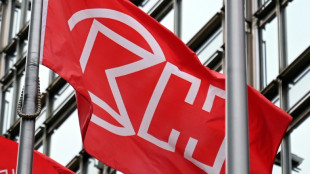

Hong Kong independence activist Edward Leung released from jail
Hong Kong independence activist Edward Leung, whose now-banned slogan became a rallying cry during the 2019 pro-democracy movement, was released from jail in the pre-dawn hours of Wednesday after serving nearly four years.
Leung, 30, was the face of localist group Hong Kong Indigenous and a rising star on the political scene as a fledgling pro-independence movement gained momentum in 2016.
But his ascent was cut short two years later when he was jailed for rioting and assaulting police during a 2016 protest, at which demonstrators hurled bricks and set rubbish alight in the city's Mong Kok district.
While Leung was kept in a maximum-security prison, his election campaign slogan -- "Liberate Hong Kong, revolution of our times" -- gained prominence as protesters in 2019 took it up as a cry of resistance against China's authoritarian rule.
The chant -- ubiquitous during the huge and at times violent pro-democracy rallies which convulsed the city -- was criminalised last year under a sweeping national security law Beijing imposed on Hong Kong to stamp out dissent.
Leung was expected to leave Shek Pik prison during Wednesday's working hours, but officials confirmed he was released under cover of darkness.
That was done to take "into consideration the wish and safety of the person in custody", Hong Kong's prisons department told AFP in an email.
Local media reported the activist was released before 3 am (1900 GMT Tuesday), with an online news outlet posting images shot from afar of seven-seater cars leaving the prison facility -- though Leung could not be seen.
The main road to the prison was deserted Wednesday morning, with metal barriers set up to prevent reporters from getting closer.
Around 5:45 am, Leung posted on his official Facebook page he had reunited with his family.
"After four years, I want to cherish the precious time I have with my family and restore a normal life. I would like to express my genuine gratitude for all your care," he wrote.
He added that he would "stay away from the spotlight and stop using social media", as he is legally obliged to adhere to a "supervision order".
His Facebook page appeared to be down by 6:30 am.
Leung's family had on Tuesday urged the public not to gather at the prison for the activist's release.
Weeks before, government sources had told local media that Leung was "likely to be watched" as authorities are wary of his influence in the now-smothered pro-independence camp.
- Meteoric rise and fall -
Born in the mainland Chinese city of Wuhan in 1991, Leung is most recognised as one of the early faces of Hong Kong's pro-independence movement.
He was initially resented by mainstream democracy supporters for his staunch advocacy of Hong Kong's independence.
But his views gained popularity -- particularly among the territory's younger generation -- after the largely peaceful 79-day Occupy Movement in 2014 failed, with police forcefully clearing out protesters with batons and pepper spray in some instances.
The philosophy and political science student then joined Hong Kong Indigenous as its spokesman, and in 2016 became the first pro-independence candidate to run in a legislative by-election.
Leung did not win, but his tally of more than 66,000 votes was widely seen as a show of rising support for the once-marginal movement.
He had remained largely silent during his time in prison -- save for one open letter published in July 2019 when he urged protesters not to be blinded by hatred, as tensions rose between the pro-democracy movement and police, as well as local supporters of Beijing's rule.
Today, under the national security law which came into force in 2020, advocating for Hong Kong's separation from China carries a jail term of 10 years to life in prison.
K.Cairstiona--NG



